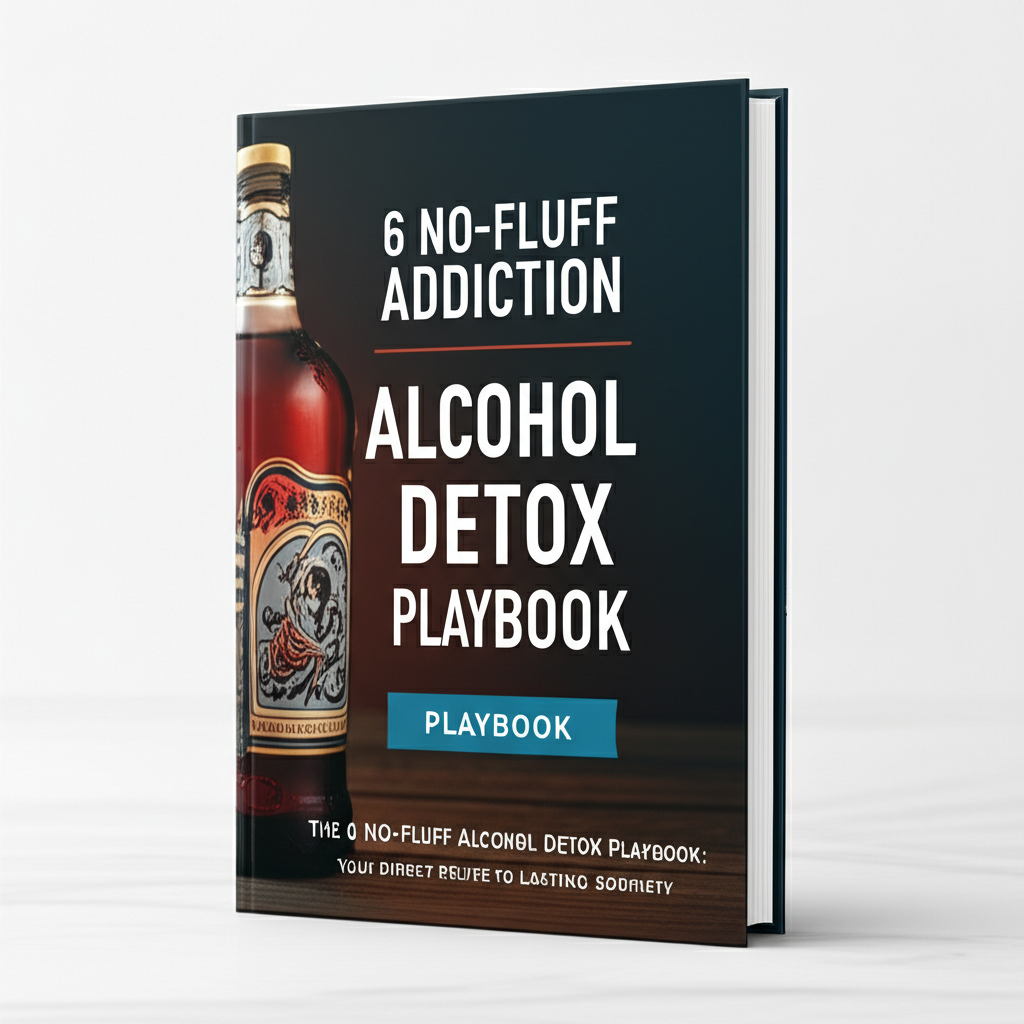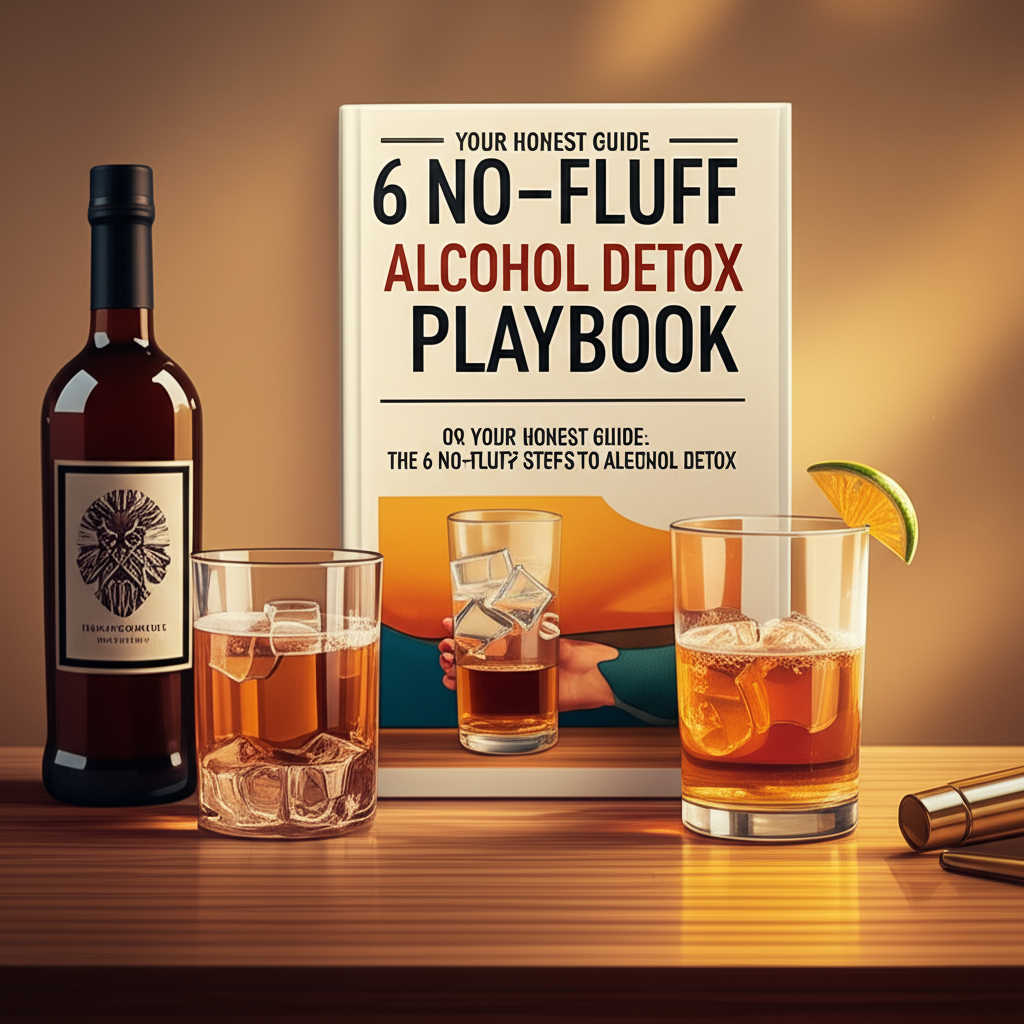The desire for a "quick fix" is a powerful human instinct, especially when grappling with something as challenging as alcohol addiction. If you’re searching for "quick alcohol detox," you’re likely feeling overwhelmed, perhaps ashamed, and desperate for a rapid path to sobriety. You want to regain control, stop the cycle, and reclaim your life – and you want to do it now.
This article understands that urgency. However, it’s critical to start with a foundational truth: while there are pathways to begin the detoxification process relatively quickly, true "quick" alcohol detox without professional guidance can be incredibly dangerous, even life-threatening. The speed of detox should always be secondary to its safety and effectiveness.
This comprehensive guide will unpack what "quick" truly means in the context of alcohol detox, explain the risks, and present three primary avenues for safely beginning your journey to sobriety. We’ll move beyond the myths and equip you with factual, actionable information to make informed decisions about your health and future.
The Allure of a "Quick" Detox – And Why It’s Often Misunderstood
The term "quick alcohol detox" often conjures images of a rapid, painless process that instantly eliminates alcohol from the body and all its associated problems. While the body can metabolize alcohol relatively quickly, the brain and nervous system, which have adapted to its constant presence, do not adjust as fast. This disconnect is where the danger lies.
What "Quick" Really Means in Detox
In the medical and recovery world, "quick" usually refers to:
- Rapid Initiation: The ability to get into a detox program or consult with a medical professional without significant delay.
- Acute Phase Management: The relatively short period (typically 3-7 days) where the most severe physical withdrawal symptoms are managed under supervision.
- Efficiency: A structured process designed to safely stabilize an individual as efficiently as possible, preparing them for the next stages of recovery.
It does not mean bypassing the medical complexities or magically erasing the physiological and psychological impact of alcohol dependence.
The Dangers of Going It Alone: Why Self-Detox Can Be Lethal
For individuals with moderate to severe alcohol dependence, attempting to detox at home without medical supervision is fraught with peril. Alcohol withdrawal is not just uncomfortable; it can trigger a cascade of severe health complications, including:
- Seizures: Potentially leading to falls, injuries, or even brain damage.
- Delirium Tremens (DTs): A severe form of withdrawal characterized by profound confusion, hallucinations, rapid heart rate, high blood pressure, and fever. DTs are a medical emergency with a significant mortality rate if untreated.
- Cardiac Arrest: Irregular heart rhythms and other cardiovascular complications can be fatal.
- Aspiration Pneumonia: Vomiting during a seizure or state of unconsciousness can lead to inhaling stomach contents into the lungs.
- Dehydration and Electrolyte Imbalance: Vomiting, sweating, and reduced fluid intake can lead to dangerous imbalances.
Even for those with milder dependence, the intense discomfort, anxiety, and cravings can quickly lead to relapse, making the cycle of addiction even harder to break.
Understanding Alcohol Withdrawal: What to Expect
Before diving into detox options, it’s essential to understand the underlying physiological process. Alcohol withdrawal occurs when someone who is physically dependent on alcohol suddenly stops or significantly reduces their intake. The central nervous system, which has adapted to the depressant effects of alcohol, becomes overactive, leading to a range of symptoms.
Common Withdrawal Symptoms
Symptoms vary widely based on the individual’s drinking history, general health, and other factors. They can range from mild discomfort to life-threatening emergencies.
Mild to Moderate Symptoms (Typically 6-24 hours after last drink):
- Tremors (shakiness)
- Anxiety and agitation
- Headache
- Nausea and vomiting
- Sweating
- Insomnia
- Loss of appetite
- Mild tachycardia (rapid heartbeat)
Severe Symptoms (Typically 24-72+ hours after last drink):
- Hallucinations (auditory, visual, tactile)
- Seizures
- Delirium Tremens (DTs) – characterized by severe disorientation, agitation, profound confusion, fever, and extreme autonomic instability.
- Severe hypertension (high blood pressure)
- Severe tachycardia
- Arrhythmias (irregular heartbeats)
The Timeline of Alcohol Withdrawal
While individual experiences vary, a general timeline for acute withdrawal is:
- 6-12 hours: Mild symptoms begin (tremors, anxiety, headache, nausea).
- 12-24 hours: Alcohol hallucinosis may occur (visual, auditory, or tactile hallucinations while fully conscious).
- 24-48 hours: Withdrawal seizures are most likely to occur.
- 48-72 hours and beyond: Delirium Tremens (DTs) can set in. This is the most severe and dangerous phase, potentially lasting for several days.
- 3-7 days: Most acute physical symptoms subside, though some individuals may experience Post-Acute Withdrawal Syndrome (PAWS) for weeks or months, including anxiety, insomnia, and mood swings.
Why Medical Supervision is Crucial
Medical supervision during detox provides several layers of protection and support:
- Safety: Professionals can monitor vital signs, anticipate complications, and intervene immediately if dangerous symptoms arise.
- Comfort: Medications can significantly reduce the severity of withdrawal symptoms, making the process more tolerable and less distressing.
- Relapse Prevention: Managing symptoms effectively reduces the likelihood of "drinking through" withdrawal.
- Preparation for Recovery: Detox is just the first step. Medical settings can help connect individuals with ongoing treatment and support.
Guide 1: Medical Detoxification – The Gold Standard
For most individuals with moderate to severe alcohol dependence, medical detoxification is not just a recommendation; it’s a necessity. This approach prioritizes safety, comfort, and the highest chance of successful stabilization.
What is Medical Detox?
Medical detox, often referred to as inpatient or clinical detox, involves 24/7 medical supervision in a specialized facility, hospital, or dedicated detox center. The primary goal is to safely manage the physical symptoms of alcohol withdrawal and stabilize the individual.
Who is it For?
Medical detox is strongly recommended for:
- Individuals with a history of severe withdrawal symptoms (seizures, DTs).
- Those with significant alcohol dependence (e.g., daily heavy drinking).
- People with co-occurring medical conditions (heart disease, liver issues, diabetes).
- Individuals with co-occurring mental health disorders (anxiety, depression, bipolar disorder).
- Anyone lacking a stable, supportive home environment for detox.
- Pregnant individuals.
The Process: Medications, Monitoring, and Support
- Initial Assessment: Upon admission, a comprehensive medical and psychological evaluation is conducted to determine the individual’s specific needs and risk factors.
- Medication Management: The cornerstone of medical detox is the use of medications to alleviate withdrawal symptoms and prevent complications.
- Benzodiazepines (e.g., Librium, Ativan, Valium): These are the most common medications used. They work by mimicking alcohol’s effects on the brain’s GABA receptors, calming the central nervous system and reducing the risk of seizures and DTs. Dosing is carefully tapered down over several days.
- Anti-seizure Medications: May be used in some cases, especially if there’s a history of seizures.
- Antipsychotics/Mood Stabilizers: For managing severe agitation, hallucinations, or co-occurring mental health issues.
- Nutritional Support: IV fluids, vitamins (especially thiamine to prevent Wernicke-Korsakoff syndrome), and electrolytes are often administered to correct deficiencies.
- 24/7 Monitoring: Medical staff continuously monitor vital signs (heart rate, blood pressure, temperature), mental status, and symptom progression.
- Supportive Environment: A safe, sober, and structured environment free from triggers, allowing the individual to focus solely on detox.
- Preparation for Next Steps: As physical symptoms subside, staff begin to introduce educational sessions, therapy, and planning for the next phase of recovery (e.g., inpatient rehab, outpatient programs).
Benefits of Medical Detox
- Highest Safety Profile: Minimized risk of life-threatening complications.
- Symptom Relief: Medications make withdrawal significantly more tolerable.
- Comprehensive Care: Addresses physical health, mental health, and nutritional needs.
- Expert Guidance: Access to doctors, nurses, and addiction specialists.
- Foundation for Recovery: Smooth transition into longer-term treatment.
Guide 2: Outpatient Detox – When It Might Be an Option
For a select group of individuals, outpatient detox can be a viable and effective option. This approach allows individuals to detoxify at home while receiving regular medical supervision and support.
Eligibility for Outpatient Detox
Outpatient detox is only suitable for individuals who meet strict criteria, typically including:
- Mild to Moderate Alcohol Dependence: No history of severe withdrawal symptoms (seizures, DTs).
- Good Physical Health: No serious co-occurring medical conditions that could be exacerbated by withdrawal.
- Strong Support System: Reliable family or friends at home who can monitor the individual and ensure medication adherence.
- Safe and Stable Home Environment: Free from alcohol and other substances, and conducive to recovery.
- Reliable Transportation: Ability to attend daily or frequent appointments.
- Motivation and Commitment: A high level of self-discipline and willingness to follow medical instructions.
- No Co-occurring Severe Mental Health Issues: Uncontrolled psychiatric conditions can complicate outpatient detox.
How Outpatient Detox Works
- Thorough Screening: A medical professional conducts an in-depth assessment to determine if outpatient detox is safe and appropriate.
- Daily Medical Check-ins: The individual attends scheduled appointments (daily or every other day) at a clinic or doctor’s office. During these visits:
- Vital signs are checked.
- Withdrawal symptoms are assessed.
- Medication effectiveness is reviewed, and adjustments are made.
- Support and counseling are provided.
- Prescribed Medications: Similar to inpatient detox, benzodiazepines (e.g., Librium, Ativan) are often prescribed to manage withdrawal symptoms, but usually in smaller doses and with stricter monitoring for adherence.
- At-Home Monitoring: The individual (and their support person) is educated on what symptoms to watch for and when to seek emergency care.
- Connection to Ongoing Treatment: Outpatient detox programs often include or strongly recommend immediate follow-up with therapy, support groups (like AA), or further outpatient treatment.
Considerations and Risks
- Risk of Relapse: Being in one’s usual environment can present more triggers and opportunities for relapse.
- Limited Supervision: Less immediate medical intervention compared to inpatient settings.
- Dependence on Support System: The success heavily relies on the reliability of the at-home support person.
- Potential for Undisclosed Symptoms: Individuals may downplay or hide symptoms, increasing risk.
Outpatient detox, while offering flexibility, requires a significant commitment from the individual and a very careful assessment by medical professionals. If there’s any doubt about safety, inpatient medical detox is always the preferred choice.
Guide 3: The "At-Home" Myth – And Safer Preparatory Steps (NOT a Standalone Detox)
The concept of a "quick alcohol detox at home" for someone with alcohol dependence is largely a dangerous myth. As established, unsupervised detox carries severe risks. However, for individuals with very mild dependence or those who are heavy social drinkers considering reducing their intake, some preparatory steps can be taken under medical advice to support the body. It’s crucial to understand that these are not substitutes for medical detox and are dangerous if true dependence is present.
Why True At-Home Detox is Rarely Safe for Dependence
The core issue is the unpredictable nature of alcohol withdrawal. Even individuals who believe their dependence is "mild" can experience severe symptoms. Without immediate access to medical intervention, a seizure or the onset of Delirium Tremens at home can be fatal. The lack of medication to ease symptoms also makes the process incredibly uncomfortable, often leading to rapid relapse.
When NOT to consider any form of "at-home" detox:
- You experience tremors, nausea, or sweating when you haven’t had a drink in a few hours.
- You’ve had withdrawal seizures or Delirium Tremens in the past.
- You drink heavily every day.
- You have co-occurring health conditions.
- You live alone or don’t have a reliable support person.
- You feel overwhelming cravings or anxiety when sober.
If any of these apply to you, you NEED professional medical detox.
What You Can Do to Prepare (Under Medical Advice)
For those contemplating reducing their drinking or who have very mild, infrequent symptoms after heavy drinking, and have been cleared by a doctor, these steps can support your body. Always consult a healthcare professional before making significant changes to your alcohol intake.
- Hydration is Key: Alcohol is a diuretic, leading to dehydration.
- Drink plenty of water: Aim for at least 8-10 glasses a day.
- Electrolyte-rich fluids: Sports drinks (low sugar), coconut water, or broths can help replenish lost electrolytes.
- Avoid caffeine and sugary drinks: These can worsen anxiety and dehydration.
- Nutrient-Dense Foods: Alcohol depletes essential vitamins and minerals.
- Eat regular, balanced meals: Focus on whole foods like fruits, vegetables, lean proteins, and whole grains.
- Vitamin B Complex: Especially Thiamine (B1), which is critical for brain function and often severely depleted in heavy drinkers. A doctor can recommend appropriate supplementation.
- Avoid processed foods: These offer little nutritional value and can lead to energy crashes.
- Build a Support System (Crucial for any path):
- Inform a trusted friend or family member: Let them know your intentions and ask for their support and to check on you regularly.
- Avoid isolation: Connect with sober friends or family.
- Consider virtual support groups: Even if you’re not fully detoxing, connecting with others who understand can be invaluable.
- Create a Calm Environment:
- Remove all alcohol from your home.
- Minimize stress: Engage in relaxing activities like reading, gentle stretching, or listening to calming music.
- Prioritize sleep: Though difficult during withdrawal, establishing a routine and practicing sleep hygiene can help.
- Understand Your Triggers:
- Identify situations, people, or emotions that typically lead you to drink. Develop coping strategies to avoid or manage these.
Warning Signs to Seek Immediate Medical Help
Even if you’ve been cleared for very mild self-management, you must be prepared to seek emergency care immediately if you experience:
- Seizures or convulsions.
- Severe confusion, disorientation, or hallucinations.
- Rapid or irregular heartbeat.
- High fever.
- Severe tremors that are uncontrollable.
- Intense anxiety or panic attacks.
- Inability to keep down food or fluids.
Call 911 or your local emergency number without hesitation.
Beyond Detox: The Road to Lasting Recovery
Detoxification is merely the first, albeit critical, step in overcoming alcohol addiction. It addresses the physical dependence, but it doesn’t resolve the underlying psychological, emotional, and behavioral issues that fuel addiction. Lasting sobriety requires ongoing commitment and a comprehensive approach to recovery.
Therapy and Counseling
Individual and group therapy are vital for developing coping mechanisms, addressing trauma, managing triggers, and understanding the root causes of addiction.
- Cognitive Behavioral Therapy (CBT): Helps identify and change negative thought patterns and behaviors related to drinking.
- Dialectical Behavior Therapy (DBT): Focuses on emotional regulation, distress tolerance, and interpersonal effectiveness.
- Motivational Interviewing: Helps individuals explore and resolve ambivalence about recovery.
- Family Therapy: Addresses the impact of addiction on family dynamics and helps rebuild healthy relationships.
Support Groups
Peer support groups offer a sense of community, shared experience, and accountability.
- Alcoholics Anonymous (AA): A widely recognized 12-step program based on mutual support and spiritual principles.
- SMART Recovery: A science-based program that teaches self-empowerment and self-reliance using tools based on CBT and motivational interviewing.
- Refuge Recovery: A Buddhist-inspired path to recovery from addiction.
Lifestyle Changes
Sustainable recovery involves rebuilding a life free from alcohol.
- Healthy Diet and Exercise: Improves mood, energy levels, and overall physical health.
- Stress Management Techniques: Mindfulness, meditation, yoga, and hobbies can help manage stress without resorting to alcohol.
- Develop New Hobbies and Interests: Re-engage with activities you enjoy or discover new passions that bring joy and purpose.
- Build a Sober Network: Surround yourself with supportive, sober individuals who reinforce your recovery goals.
- Relapse Prevention Planning: Identify potential triggers and develop concrete strategies to cope with them if they arise.
Conclusion: Your Safest Path to Sobriety Starts Now
The desire for a "quick alcohol detox" is understandable, but the reality is that safety and effectiveness must always take precedence over speed. This article has presented three "guides" – not as equally safe options for everyone, but as pathways tailored to different levels of dependence and risk:
- Medical Detoxification: The safest and most effective choice for most individuals with moderate to severe alcohol dependence, offering 24/7 care, medication management, and expert supervision.
- Outpatient Detox: A viable option for those with mild dependence, good health, and a strong home support system, requiring frequent medical check-ins.
- Safer Preparatory Steps (NOT a standalone detox): For very mild cases or those reducing intake under medical guidance, focusing on hydration, nutrition, and a strong support system, with an immediate plan for emergency care if symptoms worsen.
The most crucial takeaway is this: If you suspect you have alcohol dependence, the very first "quick" step you should take is to contact a medical professional. This could be your primary care physician, an addiction specialist, or a local detox facility. They can accurately assess your situation, determine your level of risk, and guide you to the safest and most appropriate detox path.
Don’t let the fear of withdrawal or the search for an easy answer deter you from seeking help. Your journey to lasting sobriety begins with a single, safe step. Take that step today, and reclaim your health, your peace, and your future.








